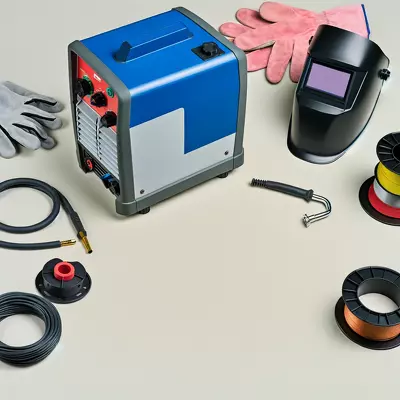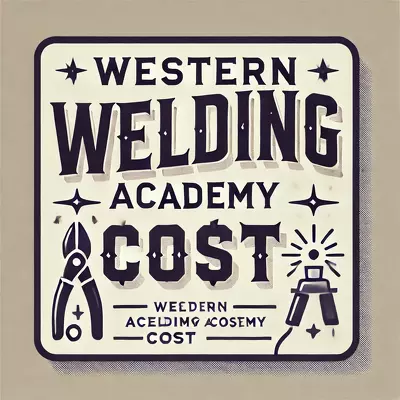From Masks to Money: The Journey of a Welder’s Annual Paycheck

Exploring the financial landscape of welding careers offers insight into the earnings potential within this skilled trade. Welders play a crucial role in various industries, from construction to manufacturing, making their compensation a topic of interest for those considering or currently navigating this career path. This article examines the average annual income for welders, factoring in experience, location, and specialization.
I. Introduction to Welding Careers
A. Importance of Welding in Various Industries
Welding stands as a cornerstone in the construction of the modern world, touching nearly every industry, from automotive manufacturing to infrastructure development. This indispensable skill ensures the integrity of critical structures and machinery, underscoring its value across various sectors, including aerospace, construction, and energy production. The ubiquity of welding underpins its significance, highlighting the essential role welders play in advancing technological progress and maintaining the functionality of our physical environment.
B. Overview of Welder’s Role and Skills Required
Welders wield a unique set of skills, blending technical knowledge with hands-on expertise to join metal parts with precision and durability. Mastery in this field requires an understanding of different welding techniques—such as MIG, TIG, and stick welding—along with a keen eye for detail and strict adherence to safety protocols. Beyond their technical prowess, successful welders possess problem-solving abilities and a commitment to continuous learning, adapting to new materials, and evolving technologies.
II. Factors Influencing Welder’s Annual Income
A. Experience Level
Experience plays a pivotal role in determining a welder’s income, with seasoned professionals often commanding higher salaries. As welders advance in their careers, their accumulated knowledge and refined skills make them invaluable, particularly in specialized or high-stakes projects requiring utmost precision.
B. Geographic Location
The geographic location significantly impacts welders’ earnings, with salaries varying widely across different regions. Factors such as the cost of living, demand for skilled labor, and the prevalence of industries reliant on welding work all influence the compensation packages offered to welders.
C. Industry and Specialization
The specific industry and area of specialization also dictate a welder’s earning potential. Specialized sectors, such as underwater welding or aerospace, tend to offer higher wages due to the complex skills and risk factors involved. Similarly, welders who excel in niche areas of their trade can leverage their expertise for better pay.
III. Average Annual Income for Welders
A. Entry-Level Welders
Entry-level welders, often embarking on their careers with foundational skills, start with lower income brackets. However, these initial stages provide crucial on-the-job learning opportunities, setting the groundwork for future financial growth.
B. Mid-Career Welders
Mid-career welders with several years of experience and possibly additional certifications see a notable increase in their earnings. This phase often involves taking on more complex projects and possibly stepping into supervisory roles, which is reflected in their enhanced compensation.
C. Experienced Welders
Experienced welders boasting extensive expertise and possibly leadership positions achieve the highest income levels in the field. Their deep knowledge and ability to tackle highly specialized tasks make them sought-after professionals, reflected in their premium wages.
IV. Enhancing Earning Potential in Welding
A. Specialized Certifications
Obtaining specialized certifications is a proven pathway to increasing a welder’s earning potential. Certifications in advanced welding techniques or specific materials can open doors to lucrative projects and industries seeking expert skills.
B. Advanced Education and Training
Pursuing advanced education and training not only broadens a welder’s skill set but also signals their commitment to excellence. This dedication can translate into higher pay, especially in industries that prioritize cutting-edge technology and precision.
C. Navigating the Job Market
Effectively navigating the job market, from leveraging networking opportunities to understanding the dynamics of supply and demand in the welding profession, can significantly impact a welder’s income. Strategic moves, such as targeting growth industries or regions with higher demand for welding expertise, can yield substantial financial benefits.
V. FAQs
Q: What factors influence a welder’s salary?
A: Experience level, geographic location, and industry specialization are key factors that influence a welder’s salary.
Q: How can welders increase their annual income?
A: Welders can increase their income by obtaining specialized certifications, advancing their education and training, and strategically navigating the job market.
Q: Are there differences in pay for welders based on the industry?
A: Yes, there are significant differences in pay based on the industry, with specialized sectors like aerospace and underwater welding often offering higher wages.
Q: What is the average starting salary for an entry-level welder?
A: The average starting salary for an entry-level welder varies by region and industry, but it generally falls on the lower end of the wage spectrum for the profession.
Q: How does experience impact a welder’s earning potential?
A: Experience greatly impacts a welder’s earning potential, with seasoned professionals commanding higher salaries due to their advanced skills and expertise.
Q: What are some high-paying welding jobs?
A: High-paying welding jobs include positions in aerospace, underwater welding, and pipeline construction, which require specialized skills and certifications.
Q: How much do welders make working on pipelines?
A: Welders working on pipelines are among the highest-paid in the field, with salaries reflecting the demanding nature of the work and the specialized skills required.
VI. Conclusion
A. Summary of Key Points
The welding profession offers a robust career path with the potential for financial growth, influenced by factors such as experience, location, and specialization. By embracing continuous learning and leveraging their skills, welders can navigate the dynamic job market to enhance their earning potential and achieve professional success.
B. The Future of Welding Careers
The future of welding careers looks promising, driven by ongoing industrial advancements and the essential nature of welding work across multiple sectors. As technologies evolve, welders who continuously adapt and refine their skills will find themselves well-positioned to thrive in this ever-changing landscape.
VII. Suggested Readings
The welding field is both broad and deep, offering numerous opportunities for professional growth and specialization. For those interested in exploring this career further or enhancing their skills, the following books provide valuable insights and guidance:
- “Welding: Principles and Applications” by Larry Jeffus – This comprehensive guide covers the latest techniques, offering practical advice for both beginners and experienced welders.
- “Modern Welding” by Andrew D. Althouse, Carl H. Turnquist, and William A. Bowditch – A detailed overview of welding technology; this book serves as an essential resource for students and professionals alike.
- “The Welding Business Owner’s Hand Book” by David Zielinski – Focused on the entrepreneurial aspects of welding, this book provides strategies for starting and managing a successful welding business.
- “Metallurgy and Welding” by J. Marshall – For those interested in the scientific underpinnings of welding, this book offers an accessible introduction to metallurgy and its applications in welding.
These readings not only enrich one’s understanding of welding but also highlight the diverse pathways within the profession. Whether one is just starting or looking to advance their career, the welding field offers endless opportunities for growth and success.






